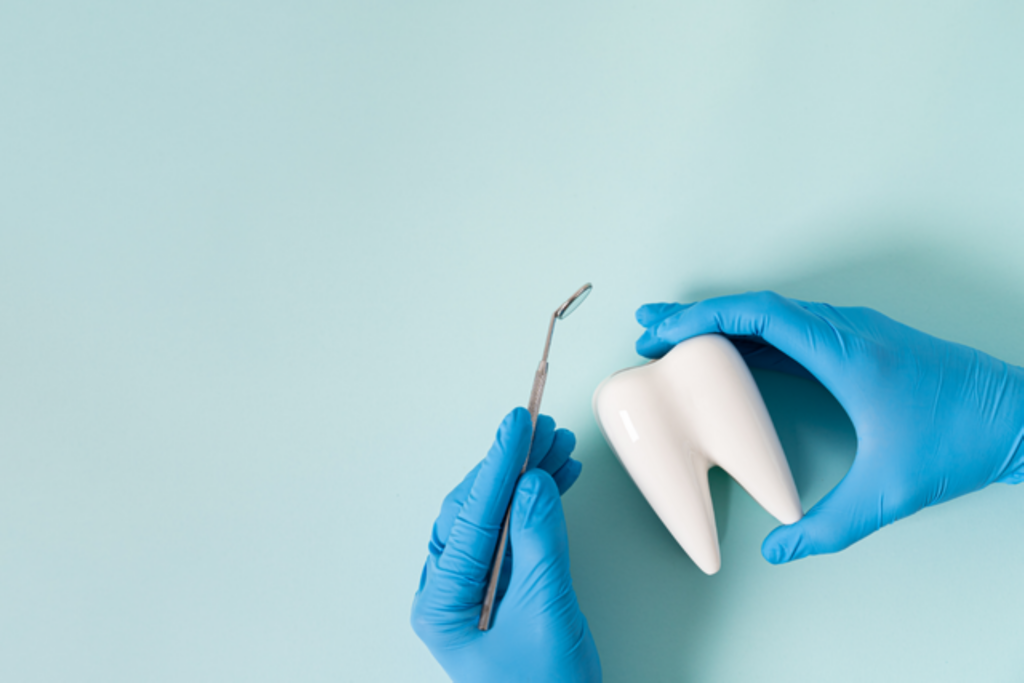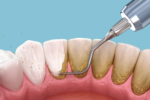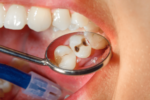A composite filling is provided to strengthen teeth so any decay that has already formed can no longer spread; this also aids in restoring your smile overall. This is a standard method of restoration that dentists frequently suggest to patients so they can avoid dealing with future infection and preventing their tooth’s pulp from dying.
A wide range of materials can be utilized in the production of dental fillings and other restorative treatments; but amalgam and composite fillings are the most common options.
Dentists have relied on amalgam for cavity fillings for many years. Composite fillings, on the other hand, have seen a surge in popularity because of how they imitate tooth structure and the length of time they may remain in place.
What are Dental Fillings?
Composite dental fillings are restorations made from ceramic and plastic resin and are often supplemented with powdered glass filler to blend in with the natural tooth color. These dental fillings in Edmonton are an excellent option for people who are self-conscious about their smile or teeth because the filling hue matches the tooth’s natural color.
Composite dental fillings can restore both the function and aesthetics of decayed teeth. These fillings can withstand the regular chewing forces you place on your teeth every day. Composite tooth dental fillings near you have a five- to ten-year lifespan, so they aren’t a permanent solution, but they also won’t cause further damage to your teeth. If composite refilling interests you, you should learn more about it.
Tips to Avoid Tooth Decay After Dental Fillings
Take good care of your teeth after obtaining a filling to keep decay at bay. Here are some suggestions for maintaining good oral hygiene following a dental filling:
- Two times of brushing and one time of flossing can remove food particles and plaque that might cause tooth decay.
- Taking fluoride can make your teeth more resilient to acid attacks by strengthening the enamel.
- Drinks and foods high in sugar can promote the growth of germs in the mouth, which can contribute to tooth decay.
- Water consumption has been linked to decreased tooth decay by removing food debris and bacteria from the mouth.
- If you visit a dentist near you regularly, they can spot problems before they worsen.
Keeping your freshly filled tooth and the rest of your teeth healthy for life is as easy as following these guidelines.
What Should You Do If You Feel Pain After Getting a Filling?
Soreness or sensitivity after a tooth filling is normal. It’s normal to have pain, and you can cure it at home. If you’re hurting after a filling, take an over-the-counter painkiller such as ibuprofen or acetaminophen.
It should reduce injury-related discomfort and edema. After filling up, wait before eating anything hard, crunchy, or sticky. Choose softer meals to avoid gum and tooth irritation. See your dentist when the pain lasts for a few days or worsens.
They may recommend a root canal if the tooth’s nerve is affected. Brush twice a day and floss regularly, along with the above instructions. Preventing cavities in other areas of your mouth will reduce your filling needs.
Come into Belle Rive Dental Clinic for Assistance.
After obtaining a filling, you must practice proper oral hygiene to facilitate a speedy recovery and protect your oral health in the long run. If you are experiencing any pain or discomfort after the process, contact our dentist in Edmonton as soon as possible.
Now is the time to begin taking care of your teeth and gums. Give us a call today to kickstart your dental journey and repair your smile.








